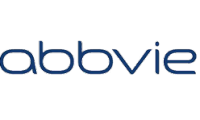-
Otsuka Commits $800M in M&A Deal Bringing a Phase 3-Ready Metabolic Disorder Drug
- Source: drugdu
- 91
- August 5, 2024
-
FDA approves Sun Pharma’s JAK inhibitor for alopecia
- Source: drugdu
- 120
- July 29, 2024
-
NICE recommends Ebglyss for atopic dermatitis patients
- Source: drugdu
- 61
- July 12, 2024
-
Study finds headache drug could prevent overuse of acute migraine medications
- Source: drugdu
- 68
- July 5, 2024
-
Study shows cholesterol-lowering drug reduces diabetic retinopathy risk
- Source: drugdu
- 93
- June 29, 2024
-
Insmed’s Trial Results Pave Way for FDA Filing in a Lung Disease With No Approved Therapies
- Source: drugdu
- 98
- May 30, 2024
-
Strides receives USFDA approval for Sucralfate Oral Suspension, 1gm/10 mL
- Source: drugdu
- 122
- May 25, 2024
-
CNS-Focused Rapport Therapeutics Preps IPO to Back Phase 2-Ready Epilepsy Drug
- Source: drugdu
- 81
- May 21, 2024
-
Positive Results from Phase 3 SELECT-GCA Study of Upadacitinib (RINVOQ®) in Patients with Giant Cell Arteritis
- Source: drugdu
- 79
- April 25, 2024
your submission has already been received.
OK
Subscribe
Please enter a valid Email address!
Submit
The most relevant industry news & insight will be sent to you every two weeks.













